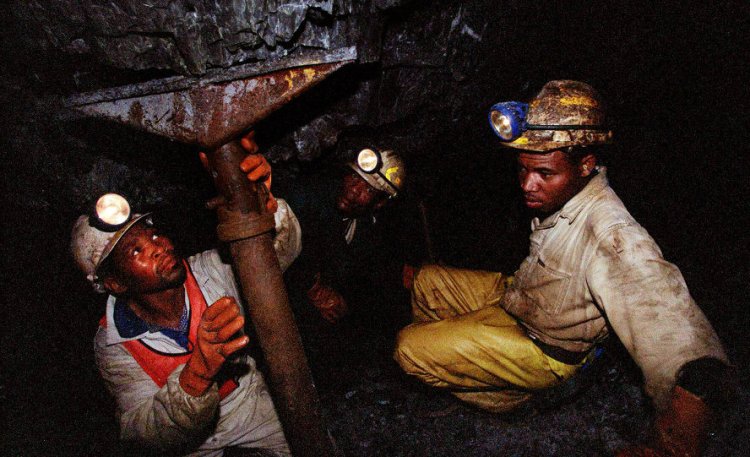IAEA launches new e-learning courses on radiation protection of workers
The material focuses on how to further strengthen worker protection and occupational exposure control and provides guidance on monitoring and recording methodologies.

More than 300 users worldwide have already signed up for two new e-learning courses on the radiation protection of workers, recently launched by the IAEA: Occupational Radiation Protection based on General Safety Guide No. GSG-7and Management and Control of Naturally Occurring Radioactive Material (NORM). The material focuses on how to further strengthen worker protection and occupational exposure control and provides guidance on monitoring and recording methodologies.
“The courses contain practical examples drawn from occupational radiation protection related requirements of IAEA General Safety Requirements GSR Part 3 and are tailored to the needs of employers, licensees and registrants; management bodies and their specialist advisers and health and safety committees concerned with the radiation protection of workers,” said Burcin Okyar, IAEA Radiation Safety Specialist and the Technical Officer responsible for the development of courses.
The course on occupational radiation protection, based on GSG-7, aims to increase understanding of the occupational exposure control requirements contained in No. GSR Part 3 and how these safety standards fit within the IAEA Safety Standards hierarchy. The course on Naturally Occurring Radioactive Material (NORM) is based on IAEA General Safety Guide (No. GSG-7) and supports participants in fulfilling the requirements of GSR Part 3 regarding worker protection in industrial processes and operations, said Okyar.
Developed under the IAEA Technical Cooperation Project Enhancing National Capabilities on Occupational Radiation Protection in Compliance with Requirements of the New International Basic Safety Standards, these courses promote a uniform approach to the control, monitoring and recording of occupational exposure and provide guidance on practical aspects of management, planning and conduct of occupational radiation protection.
“The courses are free for participants and designed to harmonize capabilities for occupational exposure monitoring, improve the implementation of a radiation protection programme and safety culture in activities and end-user facilities in participating Member States,” said Marina Binti Mishar, Section Head of the Technical Cooperation Division for Asia and the Pacific.
“The examples and visuals taken from various working environments combined with a high level of interactivity included in these courses maximise the learning experience,” added Okyar, highlighting that “to check and assess understanding, each course module includes a brief assessment at the end.”Course: Occupational Radiation Protection based on General Safety Guide No. GSG-7This course guides participants on how to meet the requirements of GSR Part 3 and follow the recommendations of GSG-7 addressing occupational exposure either in planned, existing or emergency exposure situations. The objective of the ten modules is to improve understanding of monitoring and recording of radiation exposure, occupational exposure control measures and workers' health surveillance.
Veronika Drábová, Head of the Radiation Protection Department at the Public Health Authority of the Slovak Republic, said: “The comprehensive discussion about radiation protection of workers in different exposure situations will be especially valuable for the Members States that currently have limited national policy and regulations, in helping them to develop more sophisticated radiation protection policies.”Course: Management and Control of Naturally Occurring Radioactive Material (NORM)This course encompasses 15 modules and focuses on the management and processes involving natural resources extracted from the ground such as coal, oil, natural gas and other minerals. When these resources are extracted and processed, their natural state can be modified, which may result in the enhancement of the natural radioactivity content originally present. Such enhancements may be observed in the residues or the waste created and/or in the products or by-products and are sometimes high enough to pose a risk to workers, members of the public and the environment if they are not controlled properly.
Eunice Nyarko Baafi, Assistant Research Scientist at the Ghana Atomic Energy Commission, said: “The course contains relevant and up-to-date information to support governments regulatory bodies and operators in their decision making on protection and safety of workers, the general public and the environment. It will also help young professionals to gain more knowledge of the field.”
Online courses advance the IAEA’s mission to enhance the radiation protection of workers across all industries. They are hosted on the IAEA’s Cyber Learning Platform for Network Education and Training (CLP4NET), which has acquired more than 40 000 users who have enrolled across 330 courses since its launch in 2016. IAEA courses cover many areas of radiation safety, for example, Radiation Protection of Patients, transport safety and control of radioactive material inadvertently incorporated into scrap metal.
- READ MORE ON:
- Marina Binti Mishar
- IAEA
- workers










